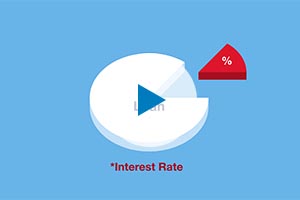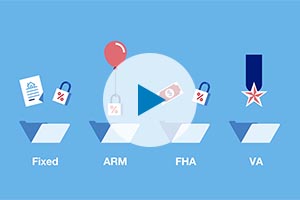
How liquid asset secured financing helps with cash flow

Capitalizing on growth in the private equity space

Hybridization driving demand

Renewing your custody contracts? Negotiate the fees.

Key considerations for launching an ILP

A first look at the new fund of funds rule

What is a CLO?

An investor’s guide to marketplace lending

Beyond Mars, AeroVironment’s earthly expansion fueled by U.S. Bank

Interval funds find growing popularity

What type of loan is right for your business?

ABL mythbusters: The truth about asset-based lending

Can ABL options fuel your business — and keep it running?

When small companies buy big: The potential of asset-based lending

Collateral options for ABL: What’s eligible, what’s not?

ESG-focused investing: A closer look at the disclosure regulation

Maximizing your infrastructure finance project with a full suite trustee and agent

Integrating regulated and unregulated debt investment vehicles

How to maximise your infrastructure finance project

Private equity and the full-service administrator

4 questions you should ask about your custodian

The unsung heroes of exchange-traded funds

Evaluating interest rate risk creating risk management strategy

Avoiding the pitfalls of warehouse lending

Employee benefit plan management: trustee vs. custodian

OCIO: An expanding trend in the investment industry

Changes in credit reporting and what it means for homebuyers

What’s the difference between Fannie Mae and Freddie Mac?

Tech lifecycle refresh: A tale of two philosophies

How institutional investors can meet demand for ESG investing

Why other lenders may be reaching out to your employees

A checklist for starting a mobility program review

High-cost housing and down payment options in relocation

4 benefits of independent loan agents

Middle-market direct lending: Obstacles and opportunities

At your service: outsourcing loan agency work

Tailor Ridge eBill case study

For today's relocating home buyers, time and money are everything

Crypto + Relo: Mobility industry impacts

Streamline operations with all-in-one small business financial support

Opening a business on a budget during COVID-19

How to fund your business without using 401(k) savings

How to establish your business credit score

How to get started creating your business plan

Costs to consider when starting a business

Common small business banking questions, answered

3 signs it’s time for your business to switch banks

How a small business is moving forward during COVID-19

When to consider switching banks for your business

Prioritizing payroll during the COVID-19 pandemic

How jumbo loans can help home buyers and your builder business

5 tips to help you land a small business loan

How to establish your business credit score

Leverage credit wisely to plug business cash flow gaps

Investing in capital expenditures: What to discuss with key partners

Do I need a financial advisor?

Avoid these 6 common mistakes investors make

Good debt vs. bad debt: Know the difference

Retirement expectations quiz

Retirement income planning: 4 steps to take

7 year-end tax planning tips

Start a Roth IRA for kids

A guide to tax diversification and investing

Bull and bear markets: What do they mean for you?

Investing myths: Separating fact from fiction in investing

How much money do I need to start investing?

5 financial benefits of investing in a vacation home

7 diversification strategies for your investment portfolio

What are alternative investments?

Effects of inflation on investments

What Is a 401(k)?

4 times to consider rebalancing your portfolio

ETF vs. mutual fund: What’s the difference?

5 questions to help you determine your investment risk tolerance

4 major asset classes explained

Understanding yield vs. return

What type of investor are you?

How to start investing to build wealth

Investment strategies by age

4 strategies for coping with market volatility

Can fantasy football make you a better investor?

How do interest rates affect investments?

A beginner's guide to investing

Student checklist: Preparing for college

Webinar: Uncover the cost: College diploma

Co-signing 101: Applying for a loan with co-borrower

How I did it: Paid off student loans

Practical money skills and financial tips for college students

How to build credit as a student

The A to Z’s of college loan terms

Is it cheaper to build or buy a house?

What’s your financial IQ? Game-night edition

Personal loans first-timer's guide: 7 questions to ask

Common unexpected expenses and three ways to pay for them

5 tips to use your credit card wisely and steer clear of debt

How to open and invest in a 529 plan

Is a home equity loan for college the right choice for your student

Your financial aid guide: What are your options?

Parent checklist: Preparing for college

How grandparents can contribute to college funds instead of buying gifts

How to apply for federal student aid through the FAFSA

Be careful when taking out student loans

Everything you need to know about consolidating debts

5 tips to use your credit card wisely and steer clear of debt

How to use credit cards wisely for a vacation budget

5 steps to selecting your first credit card

What’s a subordination agreement, and why does it matter?

Know your debt-to-income ratio

How to use debt to build wealth

Understanding the true cost of borrowing: What is amortization, and why does it matter?

Your quick guide to loans and obtaining credit

Dear Money Mentor: What is cash-out refinancing and is it right for you?

Overcoming high interest rates: Getting your homeownership goals back on track

Dear Money Mentor: How do I begin paying off credit card debt?

For today's homebuyers, time and money are everything

How I did it: Bought my dream home using equity

Buying a home Q&A: What made three homeowners fall in love with their new home

Should you buy a house that’s still under construction?

Crypto + Homebuying: Impacts on the real estate market

What are conforming loan limits and why are they increasing

Saving for a down payment: Where should I keep my money?

How I did it: My house remodel

How I did it: Bought a home without a 20 percent down payment

Money Moments: How to finance a home addition

Home buying myths: Realities of owning a home

Are professional movers worth the cost?

Money Moments: Tips for selling your home

The lowdown on 6 myths about buying a home

Get more home for your money with these tips

First-time homebuyer’s guide to getting a mortgage

4 ways to free up your budget (and your life) with a smaller home

Dear Money Mentor: When should I refinance a mortgage?

What is a home equity line of credit (HELOC) and what can it be used for?

Quiz: How prepared are you to buy a home?

How you can take advantage of low mortgage rates

Webinar: Mortgage basics: What is refinancing, and is it right for you?

Should you get a home equity loan or a home equity line of credit?

What is an escrow account? Do I have one?

These small home improvement projects offer big returns on investment

Webinar: Mortgage basics: How much house can you afford?

Webinar: Mortgage basics: Prequalification or pre-approval – What do I need?

Is it the right time to refinance your mortgage?

What is refinancing a mortgage?

What to know when buying a home with your significant other

Webinar: Mortgage basics: What’s the difference between interest rate and annual percentage rate?

Webinar: Mortgage basics: 3 Key steps in the homebuying process

How do I prequalify for a mortgage?

Webinar: Mortgage basics: Finding the right home loan for you

Webinar: Mortgage basics: Buying or renting – What’s right for you?

Webinar: Mortgage basics: How does your credit score impact the homebuying experience?

Is a home equity line of credit (HELOC) right for you?

Can you take advantage of the dead equity in your home?

How to use your home equity to finance home improvements

4 questions to ask before you buy an investment property

10 uses for a home equity loan

8 steps to take before you buy a home

6 questions to ask before buying a new home

Improving your credit score: Truth and myths revealed

Test your loan savvy

Credit: Do you understand it?

How to build and maintain a solid credit history and score

Should you give your child a college credit card?

Myth vs. truth: What affects your credit score?

Decoding credit: Understanding the 5 C’s

6 essential credit report terms to know

5 unique ways to take your credit card benefits further

What types of credit scores qualify for a mortgage?

What is a good credit score?

U.S. Bank asks: What do you know about credit?

How to improve your credit score

What you need to know before buying a new or used car

How to choose the best car loan for you

Questions to ask before buying a car

What you should know about buying a car


